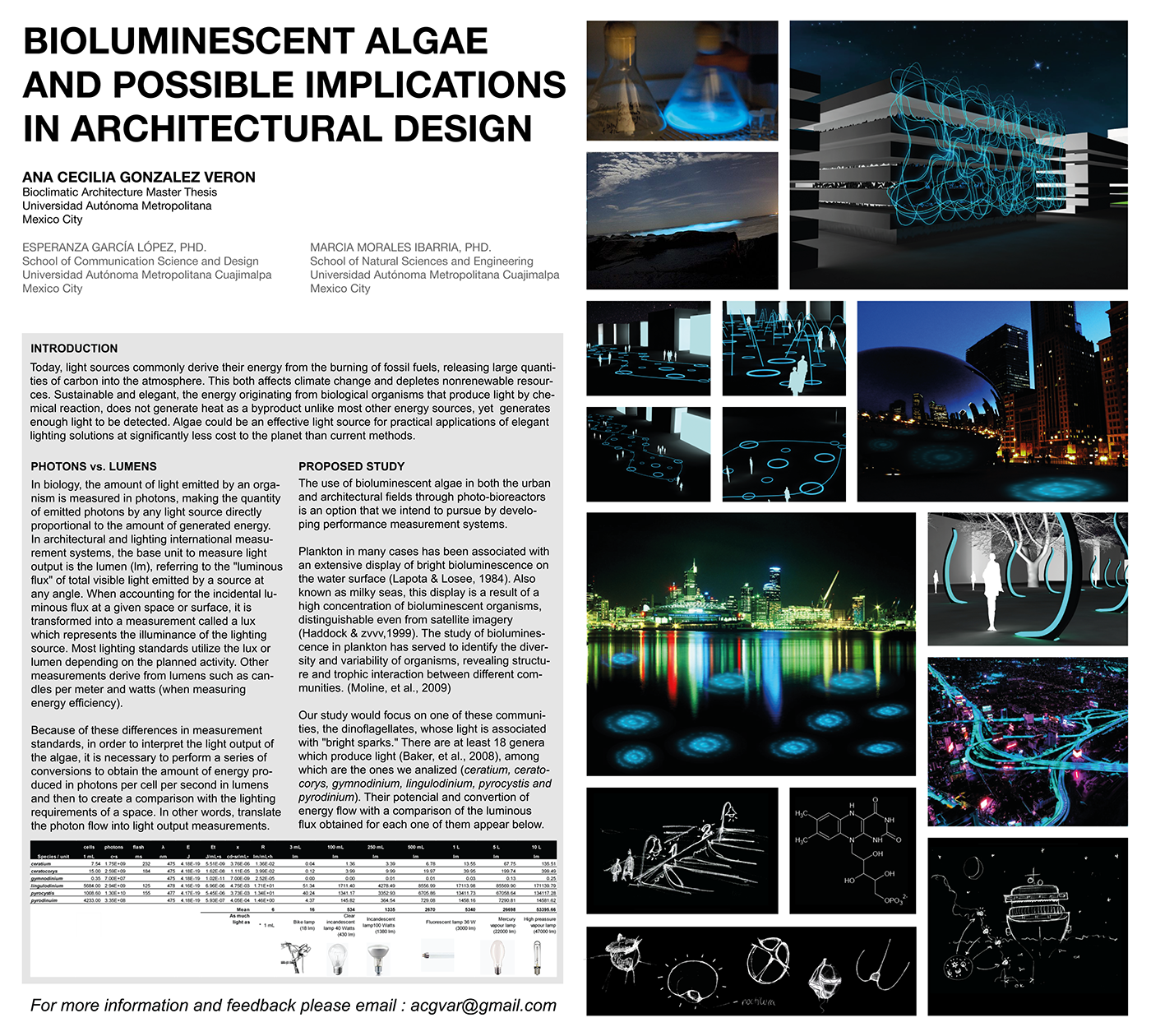Bioluminescence, México
UAM - 2013
Master's degree thesis dissertation, which explores the potential of architectural lighting through unicellular bioluminescent microorganisms. Project presented in research forums in Australia, Korea, Germany and Mexico.
Abstract
Today, most common light sources derive their energy from the burning of fossil fuels. This both causes climate change and the depletion of nonrenewable resources. In 2010, 67.6% of global electricity production originated from fossil fuels. Of the remaining sources, only 3% were renewable. As the impact of carbon emissions is global, their reduction is the responsibility of all. Bioluminescence has not garnered much attention as an energy source. This energy, produced from biological organisms that produce light by a chemical reaction, does not produce heat as a byproduct unlike most other energy sources, yet generates enough light to be detected.

Algae are a potentially good source for bioluminescence and it remains virtually un-pursued in this field. The use of bioluminescent algae in both the urban and architectural fields through photo-bioreactors is an option that we intend to pursue by developing performance measurement systems. They could be an effective light source for practical
applications of elegant lightning solutions at significantly less cost to the planet than current methods. This paper discusses the results obtained by previous experiments in the biological field. It intends to establish a comparison with ideal lighting conditions for different uses in space.


Design Proposal













